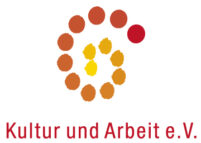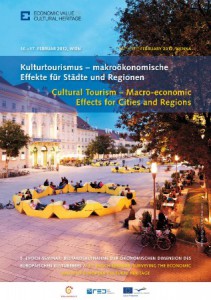Expertenseminar: „Kulturtourismus – makroökonomische Effekte für Städte und Regionen“, Wien 16./17.2.2012
Expert seminar: „Cultural Tourism – Macro-economic Effects for Cities and Regions“, Vienna, February 16/17th, 2012
Der Kulturtourismus gilt als einer der „Megatrends“ im Tourismus, als einer der wenigen Wachstumsbereiche der touristischen Nachfrage überhaupt, auch wenn er mit rund 7,8 % ein vergleichsweise kleines Segment im europäischen Tourismus umfasst. Mit dem Kulturtourismus können weit mehr und ökonomisch attraktive Zielgruppen angesprochen werden als beispielsweise mit dem Sporttourismus oder dem reinen Erholungstourismus. Das macht den Kulturtourismus unabhängiger von Moden, Konjunkturzyklen und demographischen Entwicklungen.
Diese in ökonomischer Hinsicht und mit Blick auf Beschäftigungsförderung herausragende Ausgangssituation wird durch fehlende Daten zum Kulturtourismus und zu seinen makroökonomischen Effekten beeinträchtigt. Es fehlen Szenarien, die die ökonomische Dimension für Wachstum, Beschäftigung und Innovation verdeutlichen.
Das 5. EVoCH-Seminar sollte europäischen Expert/innen eine Plattform geben, die – bislang weitgehend isoliert – kulturtouristische Daten erfasst und analysiert haben. Ziel war die Identifizierung eines möglichen Kosten-Nutzen-Berechnungsmodells für den Kulturtourismus, das beispielsweise Politik und Verwaltung in der Stadt- und Regionalentwicklung als Bewertungs- und Steuerungsinstrument dienen kann. Ziel war auch, ein europäisches Konsortium zu identifizieren, das die Erfassung kulturtouristisch relevanter Daten künftig begleiten wird.
Das Seminar richtete sich an Vertreter/innen aus dem Kulturtourimus, der Ökonomie und des Kulturerbe-Erhalts (Restaurierung, Denkmalpflege. Architektur, Projektentwicklung, öffentliche und private Träger, Kommunen, Stadt- und Regionalplanung, Kulturwirtschaft und Wirtschaftsförderung). Dem interdisziplinären Zusammenwirken galt besondere Aufmerksamkeit.
Cultural Tourism is considered to be one of the „mega trends“ in tourism and one of the few growing markets in tourism at all, even though it encompasses a comparably small segment of European tourism with an estimated 7.8 % overall. Cultural tourism allows the approach of much more and economically attractive target groups than e.g. sport tourism or recreational tourism. This makes cultural tourism independent from fashion, economic cycles and demographic developments.
In terms of economic relations and promotion of employment this is an excellent initial position, though one affected by a lack of data on cultural tourism and its macro-economic effects. Specifically, there is a lack of scenarios which demonstrate the economic dimension for growth, employment and innovation.
The 5th EVoCH seminar offered a platform to European experts who have recorded and assessed data on cultural tourism, albeit largely isolated thus far. In a guided exchange of experiences existing data was supposed be gathered. The project aimed to identify a possible cost-benefit assessment model for cultural tourism, which could serve as an evaluation and steering tool for political and administrative decision-makers in town and regional planning. Furthermore, the seminar aimed to shape a European consortium, which will accompany the assessment of relevant data in the field of tourism.
The seminar was directed at representatives of cultural tourism, economics and heritage protection (restoration, heritage preservation, architecture, project development of cultural heritage sites, private and public bodies, municipalities, city and regional planning, tourism, the cultural industry and economic development). A special focus was put on interdisciplinarity.
Ergebnisse / Conclusions online

